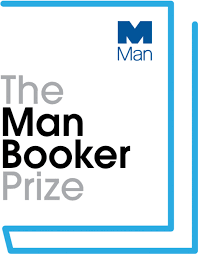 Today the longlist of the newly formed Man Booker International (MBI) 2016 was announced. In the past, this award was made every two years to an author for a body of work, so usually an author who has written numerous novels and is recognised as having made a significant literary contribution.
Today the longlist of the newly formed Man Booker International (MBI) 2016 was announced. In the past, this award was made every two years to an author for a body of work, so usually an author who has written numerous novels and is recognised as having made a significant literary contribution.
That changed after 2015, which was the last year under the old rules, I remember last year, from the longlist of 10 authors you can see here, I decided to read some of the works of the Guadeloupean author Maryse Condè.
She didn’t win the prize, but she was the right choice for me. I read her childhood essays Tales From The Heart, True Stories From My Childhood , the novel Victoire: My Mother’s Mother and the masterpiece she is most well-known for Segu.
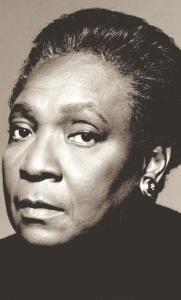
Maryse Condé
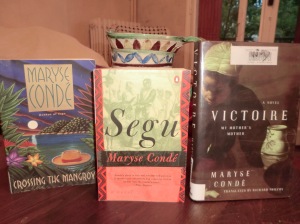
In addition to the MBI, there was another prize called the Independent Foreign Fiction Prize (IFFP) which rewarded one novel, a recent publication, that had been translated into English in the previous year.
In 2016, these two prizes have joined together, to become one, retaining the rules of the IFFP Prize and the name of the Man Booker International Prize. The £50,000 prize is shared equally between the author and the translator.
Boyd Tonkin, chair of the 2016 Man Booker International Prize judging panel, said:
‘For the first longlist in its new form, the Man Booker International Prize invites readers to share a thrilling journey of discovery across the finest fiction in translation.
The 13 books that the judges have chosen not only feature superb writing from Brazil to Indonesia, from Finland to South Korea, from Angola to Italy. Our selection highlights the sheer diversity of great fiction today.
From intense episodes of passion to miniature historical epics; from eerie fables of family strife to character-driven chronicles of urban life, this list showcases fiction that crosses every border. It also pays tribute to the skill and dedication of the first-rate translators who convey it to English-language readers.’
Thirteen books have been announced on the longlist:
José Eduardo Agualusa (Angola) Daniel Hahn, A General Theory of Oblivion – On the eve of Angolan independence an agoraphobic woman bricks herself into her apartment for 30 years, living off vegetables and the pigeons she lures in with diamonds, burning her furniture and books to stay alive, writing her story on the apartment’s walls.
Elena Ferrante (Italy) Ann Goldstein, The Story of the Lost Child – book four in the Neapolitan saga of two friends, Lena and Lila, now adults, returning to their childhood town, dealing with life as mother’s, lovers, surviving an earthquake, tragedies of nature and humanity.
Han Kang (South Korea) Deborah Smith, The Vegetarian – Yeong-hye, seeking a more ‘plant-like’ existence, decides to become a vegetarian, prompted by grotesque recurring nightmares. In South Korea, where vegetarianism is almost unheard-of and societal mores are strictly obeyed, Yeong-hye’s decision is a shocking act of subversion.
Maylis de Kerangal (France) Jessica Moore, Mend the Living – takes place over twenty-four hours surrounding a fatal accident and a resulting heart transplant as life is taken from a young man and given to a woman close to death, examining the deepest feelings of everyone involved.
Eka Kurniawan (Indonesia) Labodalih Sembiring, Man Tiger – A slim, wry story set in an unnamed town near the Indian Ocean, Man Tiger tells the story of two interlinked and tormented families, and of Margio, an ordinary half-city, half-rural youngster who also happens to be half-man, half-supernatural female white tiger.
Yan Lianke (China) Carlos Rojas, The Four Books – In the ninety-ninth district of a sprawling labour camp, the Author, Musician, Scholar, Theologian and Technician are undergoing Re-education, to restore their revolutionary zeal and credentials. In charge of this process is the Child, who delights in draconian rules, monitoring behaviour and confiscating treasured books.
Divided into four narratives, echoing the four texts of Confucianism and the four Gospels of the New Testament, The Four Books tells the story of one of China’s most controversial periods, demonstrating the power of camaraderie, love and faith against oppression and the darkest possible odds.
Fiston Mwanza Mujila (Democratic Republic of Congo/Austria) Roland Glasser, Tram 83 – In a war-torn African city-state tourists converge with students, ex-pats and locals. Their one desire: to make a fortune by exploiting the wealth of the country, both mineral and human. As night falls, they go out to drink, dance, eat and abandon themselves in Tram 83, the only night-club of the city, a den of all iniquities. An African-rhapsody novel infused with the rhythms of jazz.
Raduan Nassar (Brazil) Stefan Tobler, A Cup of Rage – A pair of lovers – a young female journalist and an older man who owns an isolated farm in the Brazilian outback – spend the night together. The next day they proceed to destroy each other. Erotic cult novel by one of Brazil’s most infamous modernist writers explores alienation, the desire to dominate and the wish to be dominated.
Marie NDiaye (France) Jordan Stump, Ladivine – a psychological tale of a trauma that ensnares three generations of women, via a woman captive to a secret shame. Once a month, Clarisse Rivière leaves her family and secretly takes the train to visit her mother, Ladivine. Just as Clarisse’s husband and daughter know nothing of Ladivine, Clarisse has hidden nearly every aspect of her adult life from this woman, whom she dreads, despises but also pities.
Kenzaburō Ōe (Japan) Deborah Boliner Boem, Death by Water – his recurring protagonist and literary alter-ego returns to his hometown village in search of a red suitcase fabled to hold documents revealing the details of his father’s death during WWII: details that will serve as the foundation for his new, and final, novel.
Aki Ollikainen (Finland) Emily Jeremiah & Fleur Jeremiah, White Hunger – 1867: a year of devastating famine in Finland. Marja, a farmer’s wife from the north, sets off on foot through the snow with her two young children. Their goal: St Petersburg, where people say there is bread. Others are also heading south, just as desperate to survive.
Orhan Pamuk (Turkey) Ekin Oklap, A Strangeness in My Mind – the story of Mevlut, the woman to whom he wrote three years’ worth of love letters, and their life in Istanbul. Mevlut Karataş sells boza (a traditional mildly alcoholic Turkish drink) in Istanbul and wishes for love and riches. He doesn’t have the best of luck (falling in love with a woman and accidentally eloping with the sister) as he ages, attempts to discover what is missing from his life.
Robert Seethaler (Austria) Charlotte Collins, A Whole Life – Andreas lives his whole life in the Austrian Alps, arriving as a boy taken in by a farming family. A man of few words, when he falls in love with Marie, he has friends light her name at dusk across the mountain. When she dies in an avalanche, pregnant with their first child, Andreas’ heart is broken. He leaves the valley just once more, in WWII – and is taken prisoner in the Caucasus – returning to find modernity has reached his remote haven.
*****
A fabulous lineup of books and authors across countries and languages. I have read two of the books, Elena Ferrante’s The Story of the Lost Child and Aki Ollikainen’s White Hunger, both of which are excellent, and although I haven’t read The Vegetarian, I have read Han Kang’s more recent novel Human Acts which was brilliant!
I’d love to read Marie NDiaye, Orhan Pamuk, Kenzaburō Ōe, Robert Seethaler, Yan Lianke, they all sound fantastic. And Man Tiger sounds interesting, and I definitely want to read more of Han Kang!
A shortlist of six books will be announced on 14 April.
So many great reads, which of these sounds the most appealing to you? Have you read any already?
Further Reading
The Guardian Article: Man Booker International 2016 longlist includes banned and pseudonymous authors
Purchase A Book:
If you wish to buy one of the above books, you can do so via the Book Depository link below, with whom I have an affiliation.
Buy One of These Books at Book Depository





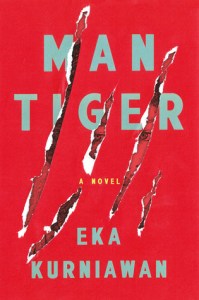

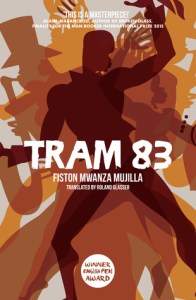



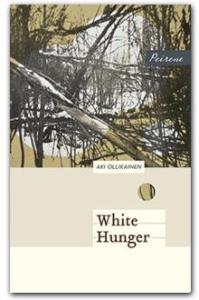
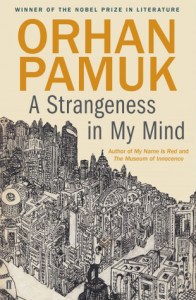

Claire, so glad you do this on your blog.
LikeLike
Thanks Valorie, I love this prize, seeing all the wonderful literature from around the world being translated into English and so great that the translators are being so highly acknowledged with the prize, hopefully it will encourage a lot more, including publishers to make more of an effort to bring us more.
LikeLiked by 1 person
I think it seems like more books are being translated – certainly we still have a ways to go in the US.
LikeLike
‘Mend the Living’ sounds wonderful, Claire. I am adding that to my TBR. I will look forward to reading more posts about these books. Many thanks. 🙂
LikeLiked by 1 person
There should be a few reviews and post coming up with the shadow jury reading them all and posting reviews at the same time, lots of interesting and diverse subjects from around the world here!
LikeLiked by 1 person
I’d like to read the Seethaler as well. I have a different Kurniawan (Beauty Is a Wound) on my stack, so that one will have to do for now.
LikeLiked by 1 person
Yes, I read a different Han Kang also, not sure if Human Acts was eligible, but it was an amazing book anyway. Can’t wait to read more reviews and perhaps acquire some of these, depsite the ever toppling TBR!
LikeLike
I’m so pleased to see ‘The Vegetarian’ on the list – and thank you for letting me know of the others … so many more books I now want to read!
LikeLike
Tis the season! And this is a fabulous list isn’t it. I’m happy to see Han Kang there too, can’t wait to read The Vegetarian.
LikeLiked by 1 person
Thanks for all this poential reading material. 😀
LikeLiked by 1 person
I’ve only read The White Hunger (and am surprised to have read one at all!). I love that these are all translated works – so many new books to discover!
LikeLiked by 1 person
Isn’t it great Naomi, I love this prize just for that, an introduction to new and worthy books and authors, the Peirene subscritpion is excellent for getting into an insight into contemporary European literature, White Hunger was a haunting read with a surprising twist!
LikeLiked by 1 person
Wow… so many of these sound incredible! And I’ve heard of so few of these books! What a wonderful way to find new authors and voices.
LikeLiked by 1 person
It’s a great prize for just that, finding new authors and voices and from many different countries, I hope this prize encourages much more translation into English, we are so far behind so many other part so the world in having access to this literature.
LikeLike
It looks like a very diverse list this year. I’ve only read a couple, the Ferrante and White Hunger – both excellent. The Seethaler is in my heap, so I’m pleased to see it on the list. Not sure when I’ll get to it, but at least it’s there!
LikeLike
You’ve read the same books I have and I really like the sound of the Seethaler as well, it’s great to have a little knowledge thanks to other blog reviews and a little of our own reading.
LikeLike
Lots to explore here. I’ve only read White Hunger and A Whole Life. I loved both of them, particularly the Seethaler.
LikeLiked by 1 person
I love the sound of the Seethaler, it seems to be one that many have read or heard of already, can’t wait to read it.
LikeLiked by 1 person
Interesting list, Claire. I read Robert Seethaler’s ‘A Whole Life’ earlier this year – it is such a beautiful book. Never thought though that it would be in the longlist. I normally read longlisted books after I see them in the longlist. So, this time I was happy that I had read atleast one of the longlisted books, which is a very rare thing for me. Since you wrote about Elena Ferrante last year (or was it the year before), the Ferrante fever has spread across the world 🙂 I even saw an article in the local newspaper here recently. So,. it is no wonder that one of Ferrante’s books is on the list. It is also nice to see other familiar names there – especially Kenzaburo Oe and Orhan Pamuk. I saw Pamuk’s book in the local bookshop when it came out, but I didn’t get it – I got Yanahigara’s book instead. Now it is interesting that both of them are there in different longlists 🙂 Thanks for sharing this list, Claire. Your blog is my source for news about literary prizes.
LikeLiked by 1 person
Thank you Vishy, I saw when I was looking up A Whole Life on GR that you’d read it, confirmation of my thought that it was soemthing I would like!
There are a lot I am happy to see and to recognise as well, I’ve been eyeing up the Pamuk and its had great reviews, just the hardcover price putting me off for now 🙂 but I’ll get to it for sure eventually. I haven’t read Oe yet, but have Soul Mountain on the shelf, so should read that one first.
It is interesting to see Ferrante on there, she has become mainstream for sure now, even though it is the 4th in the series. I’m not really into reading series and I have to admit I had less enthusiasm for the last book, having had to wait, although it was just as good, just that longevity thing, a bit of a fizzling out of the initial excitement.
You might need to follow some of the shadow jury for the rest of the reviews Vishy, I’ll write about the shortlist and the winner, but awards list, although I love to follow them, they don’t have too great an influence on my reading, if I’m honest! I’m still reading Maryse Condé and have the Kent Haruf trilogy to read and a lot of others before I start buying any more!
LikeLike
I abandoned Maylis de Kerangal’s book. Writing style (fragmented, describes everything!)
I struggled with Ohran Pamuk (My Name is Red) but I’m a tow shot reader…so I’ll give him another chance.
I have Elena Ferrante on my ‘to-read’ list
I will take a chance on Kenzaburō Ōe and Han Kang.
What influenced my choice the most? Subject matter….
Not ready for famine and cold, labour camp or half-man, half-supernatural female white tiger.
LikeLiked by 1 person
My Name is Red was a challenge for me too, though not in the same way that The Museum of Innocence was. Pamuk is a good, albeit, tendency towards melancholic, read. Ferrante was gripping in Book 1 & 2, but began to lose its grip on me by book 3, series overload, one of the many reasons I’ve shied away from Karl Ove Knausgard who I notice hasn’t made the cut this year.
Kenzaburō Ōe sounds great and you absolutely must read Han Kang, whether it’s the Vegetarian or her latest which I recently reviewed Human Acts, stunning work.
LikeLike
It’s interesting that ‘The Vegetarian’ has already made it into the comments. It’s the one I was going to single out too as perhaps being an unusual read. I haven’t sourced a copy yet though.
LikeLiked by 1 person
Yes, interesting and unusual and many seem to be appreciating The Vegetarian, I’ll be interested to see how I find it after Human Acts, most have come across The Vegetarian first, but for me it’s the other way around.
LikeLiked by 1 person
I’ve only just started Human Acts, but I’m utterly engaged already. The Vegetarian next then.
LikeLike
Pingback: Book Review – A Whole Life by Robert Seethaler | Vishy's Blog
Pingback: Man Booker International Prize 2016 #MBI2016 – Word by Word